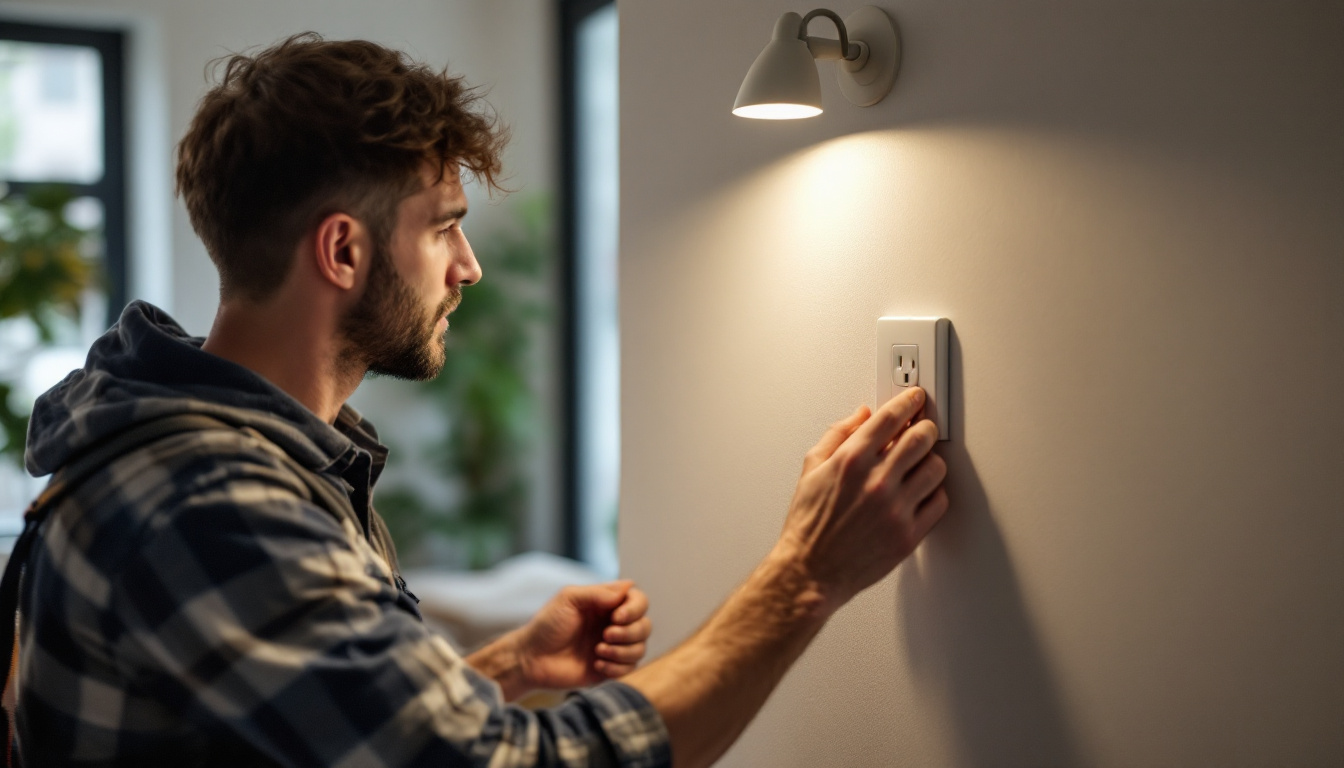

In recent years, solar-powered driveway lights have gained immense popularity among homeowners and lighting contractors alike. These eco-friendly solutions not only enhance the aesthetic appeal of a property but also contribute to energy savings and sustainability. For lighting contractors, understanding the intricacies of solar driveway lights is essential for delivering quality installations. This checklist serves as a comprehensive guide to ensure that every aspect of the installation process is covered.
Before diving into the installation process, it is crucial for lighting contractors to have a solid understanding of what solar driveway lights are and how they function. These lights harness solar energy to illuminate driveways, pathways, and outdoor spaces, making them an excellent choice for environmentally conscious clients. By utilizing renewable energy, solar driveway lights not only contribute to a greener environment but also promote sustainability in residential and commercial properties. Their increasing popularity reflects a broader trend towards eco-friendly solutions in home improvement and landscaping.
Solar driveway lights typically consist of several key components: solar panels, LED bulbs, batteries, and light sensors. The solar panels capture sunlight during the day, converting it into electrical energy, which is stored in batteries for use at night. LED bulbs provide bright illumination while consuming minimal energy, and light sensors automatically turn the lights on at dusk and off at dawn. In addition to these fundamental components, many modern solar lights also feature advanced technologies such as motion sensors, which enhance security by activating the lights when movement is detected. This added functionality not only improves safety but also extends the lifespan of the lights by ensuring they are only used when necessary.
One of the primary advantages of solar driveway lights is their energy efficiency. Since they rely on renewable energy, homeowners can significantly reduce their electricity bills. Additionally, these lights are easy to install, requiring no wiring or electrical connections. This simplicity not only saves time but also reduces installation costs. The lack of wiring also means that there is less risk of damage from weather elements or pests, which can often compromise traditional lighting systems.
Furthermore, solar lights are versatile and can be placed in various locations without the need for access to electrical outlets. This flexibility allows contractors to create customized lighting solutions that meet the specific needs of their clients. Beyond aesthetics, solar driveway lights can also enhance safety by illuminating potential hazards, such as uneven surfaces or steps, making outdoor spaces more navigable at night. Moreover, the variety of designs available—from sleek modern fixtures to classic lantern styles—means that homeowners can choose lights that complement their property’s architecture and landscaping, adding both functionality and charm to their outdoor environment.
Effective planning is vital to ensure a successful installation of solar driveway lights. Contractors should consider several factors, including the layout of the driveway, the desired brightness, and the aesthetic preferences of the homeowner.
Before installation, a thorough assessment of the driveway layout is essential. Contractors should take note of the driveway’s length, width, and any obstacles that may obstruct sunlight. Ideally, solar lights should be placed in areas that receive direct sunlight for most of the day to maximize their efficiency.
Additionally, the distance between lights should be carefully calculated to provide adequate illumination without creating dark spots. A general guideline is to space the lights 10 to 15 feet apart, depending on their brightness and the specific requirements of the driveway.
Not all solar driveway lights are created equal. Contractors should evaluate various products based on their luminosity, battery capacity, and durability. High-quality lights are typically equipped with powerful LED bulbs and long-lasting batteries that can provide illumination throughout the night.
Moreover, contractors should consider the design and style of the lights to ensure they complement the overall aesthetic of the property. Options range from sleek modern designs to more traditional lantern-style lights, allowing for a tailored approach to each project.
Once the planning phase is complete, the installation process can begin. Adhering to a systematic approach will help ensure that the lights are installed correctly and function optimally.
Before installing the solar lights, the site must be prepared. This involves clearing any debris, vegetation, or obstacles that may hinder sunlight exposure. Additionally, contractors should mark the locations where the lights will be installed, ensuring they are evenly spaced and aligned with the driveway.
It may also be beneficial to test the solar lights before installation. This allows contractors to verify that each light is functioning correctly and to check the brightness levels in different areas of the driveway.
The installation of solar driveway lights is generally straightforward. Most models come with stakes or mounting brackets that allow for easy placement in the ground. Contractors should follow the manufacturer’s instructions for securing the lights, ensuring they are stable and positioned at the correct angle for optimal sunlight exposure.
For lights that require mounting on walls or posts, using appropriate hardware is essential. Ensuring that the lights are securely fastened will prevent them from being dislodged by wind or other environmental factors.
After the installation is complete, there are several important considerations to keep in mind. These involve ensuring the lights function properly and providing guidance to homeowners on maintenance and care.
Once installed, it is crucial to test the solar driveway lights to ensure they are operating as intended. This includes checking the light sensors to confirm that they turn on and off automatically at the appropriate times. Observing the lights during the first few nights after installation can help identify any issues that may need addressing.
Contractors should also verify that the lights provide adequate illumination throughout the driveway. If certain areas appear dim or poorly lit, adjustments may be necessary, such as repositioning the lights or adding additional units.
Homeowners may not be familiar with the maintenance requirements of solar lights. It is essential for contractors to educate them on how to care for their new lighting system. This includes cleaning the solar panels regularly to remove dirt and debris that may block sunlight, as well as checking the batteries for signs of wear.
Additionally, contractors should inform homeowners about the importance of positioning the lights in areas that receive ample sunlight. If trees or structures begin to obstruct the solar panels, homeowners should be encouraged to trim or relocate them as needed.
While solar driveway lights offer numerous benefits, there can be challenges during installation and operation. Being prepared for these issues can help contractors provide better service to their clients.
One of the most common challenges with solar lights is insufficient sunlight exposure, which can lead to poor performance. If a driveway is shaded by trees or buildings, the solar lights may not receive enough energy to function effectively.
To mitigate this issue, contractors can recommend trimming back overhanging branches or relocating lights to sunnier spots. In some cases, it may be beneficial to suggest alternative lighting solutions, such as low-voltage landscape lighting, for areas with limited sunlight.
Another potential challenge involves battery performance. Over time, batteries may degrade, leading to reduced illumination or shorter operating times. Contractors should advise homeowners on the expected lifespan of the batteries and the importance of replacing them when necessary.
Additionally, using high-quality batteries can help extend the life of the solar lights. Contractors should be prepared to recommend reliable brands and provide guidance on how to replace batteries safely.
To ensure that solar driveway lights remain functional and effective over time, regular maintenance is essential. Contractors can provide homeowners with a checklist of maintenance tasks to keep their lights in optimal condition.
Cleaning the solar panels is one of the most critical maintenance tasks. Dust, dirt, and debris can accumulate on the panels, blocking sunlight and reducing the lights’ efficiency. Homeowners should be advised to clean the panels at least once a month, especially after storms or windy weather.
Using a soft cloth and mild soap is typically sufficient for cleaning. Homeowners should avoid using abrasive materials that could scratch the panels, as this can further reduce their efficiency.
Conducting seasonal checks can help identify any potential issues before they become significant problems. Homeowners should be encouraged to inspect the lights for any signs of damage, such as cracked lenses or loose connections.
Additionally, checking the battery performance during seasonal changes can help ensure that the lights continue to operate effectively. If the lights are not performing as expected, it may be time to replace the batteries or consult a lighting contractor for further assistance.
Solar driveway lights present a fantastic opportunity for lighting contractors to offer sustainable and cost-effective solutions to their clients. By following this comprehensive checklist, contractors can ensure that every aspect of the installation process is covered, from planning and installation to maintenance and troubleshooting.
With proper knowledge and attention to detail, lighting contractors can enhance the outdoor spaces of their clients while promoting energy efficiency and environmental responsibility. Embracing solar technology not only benefits homeowners but also positions contractors as leaders in the evolving landscape of outdoor lighting solutions.
Ready to elevate your installations with the most efficient and cost-effective solar driveway lights? At LumenWholesale, we provide lighting contractors like you with the highest quality, spec-grade lighting products at unbeatable wholesale prices. Say goodbye to local distributor markups and hello to our extensive selection that meets rigorous industry standards. Plus, with free shipping on bulk orders, you can stock up on premium lighting without worrying about hidden fees. Don’t compromise on quality or value—choose LumenWholesale for all your lighting needs and make your next project shine. Discover the perfect blend of quality, affordability, and convenience by visiting Wholesale Lighting at the Best Value today.

Discover the essential insights every lighting contractor needs to know about shop lights.

Discover how leveraging advanced wall socket technology can give lighting contractors a competitive edge in securing more bids.

Discover the ultimate guide to mastering high bay lighting layouts with our comprehensive tool designed specifically for lighting contractors.

Discover how to optimize warehouse lighting with our comprehensive LED Lighting Calculator guide tailored for contractors.
Get notified when NEW deals are released.
Optimize your budget with wholesale discounts.
Only top-quality, specification-grade lighting products.
No additional costs at checkout - what you see is what you pay.
We understand the unique needs of contractors.